This article was co-authored by Susannah Kerwin, ANP-BC, HNP and by wikiHow staff writer, Megaera Lorenz, PhD. Susannah Kerwin is a board certified Adult Nurse Practitioner in New York, New York. With over 10 years of experience, Susannah specializes in adult primary care, holistic medicine, and women’s healthcare. Susannah holds a Bachelor’s degree from the University of San Francisco. She obtained her MSN from New York University’s (NYU) unique dual degree program combining integrative and allopathic disciplines. Prior to becoming a Nurse Practitioner, Susannah worked for more than ten years as a Registered Nurse in psychiatric and surgical settings. Susannah also serves as an adjunct faculty member for NYU.
There are 8 references cited in this article, which can be found at the bottom of the page.
This article has been viewed 17,753 times.
Ovarian cysts are fluid-filled sacs that sometimes form in or on the ovaries. They are especially common in women of child-bearing age, although they can occasionally happen in women who have gone through menopause. Usually, they are painless and harmless. Many people even have cysts that come and go during their cycle. Some cysts, though, can be painful or indicative of other problems. Learn to recognize the symptoms of an ovarian cyst, and work with your doctor to figure out the best treatment plan for you. While many cysts will eventually go away on their own, others may have to be removed surgically. Depending on how severe your cyst is, you may need either laparoscopic surgery or a more invasive surgery called laparotomy.
Steps
Getting Ovarian Cysts Diagnosed and Monitored
-
1Ask your doctor to check for cysts during routine pelvic exams. Many ovarian cysts cause no obvious symptoms.[1] If you have a history of developing ovarian cysts, or if you concerned that you might have one for any reason, ask your doctor to monitor for any obvious signs of ovarian cysts during your regular pelvic exams. Your doctor will ask you questions about your health history, possible risk factors, and any unusual symptoms you might be having.
-
2Evaluate your risk of developing cysts. There are a few different types of ovarian cysts including follicle, corpus luteum, and non-functional. Different cysts have different risk factors associated with them, and non-functional cysts can be indicative of Polycystic Ovarian Syndrome (PCOS). Take a close look at your health history, and work with your doctor to determine if you are at risk. You should be monitored for ovarian cysts if you:[2]
- Are taking certain hormonal medications, such as the fertility drug clomiphene.
- Have had a serious pelvic infection.
- Have a previous history of ovarian cysts.
- Have endometriosis.
- Have polycystic ovary syndrome, or some other condition that affects your sex hormones.
- If you are post-menopausal, you are at greater risk of developing cancerous cysts.[3]
Advertisement -
3See your doctor if you have any symptoms of ovarian cysts. Most ovarian cysts don’t cause any obvious symptoms. Symptoms may occur if your cyst is large, ruptured, or blocking the blood vessels that supply your ovaries. If you have sudden, severe pelvic pain, go to the emergency room or call emergency services immediately. See your doctor if:[4]
- You experience pelvic pain, either dull and persistent or sharp and sudden.
- You feel pain during intercourse.
- You feel the need to urinate frequently.
- Your periods are unusually heavy, light, or irregular.
- Your abdomen is bloated or swollen.
- Your abdomen feels full or heavy, even if you haven’t eaten much.
- You have trouble getting pregnant.
- You experience any pain in your back or thighs
- You have frequent nausea or vomiting or a fever.
-
4Get tested for ovarian cysts if you have symptoms. Your doctor may perform several tests to determine if you have ovarian cysts. They will probably start by performing a pelvic ultrasound. If any cysts show up on the ultrasound, the doctor may recommend one or more of the following:[5]
- A blood-based pregnancy test to detect hormonal changes associated with certain kinds of cysts.
- A CA 125 blood test to look for elevated proteins that can occur with ovarian cancer and other conditions such as uterine fibroids, endometriosis, and pelvic inflammatory disease.
- Laparoscopic surgery to examine the cyst directly, remove the cyst, or take tissue samples to test for cancer or other conditions.
-
5Discuss your treatment options with your doctor. Depending on the cause of your cyst, its size, and whether it is causing any serious symptoms, your doctor may recommend either removing the cyst or waiting for it to go away on its own. Many cysts heal on their own in about 8-12 weeks.[6]
- In many cases, the best option is “watchful waiting.” Your doctor may recommend that you come in for regular ultrasounds over a period of a few months to monitor the condition of the cyst.[7]
- If the cyst gets bigger, does not go away after a few months, or causes serious symptoms, your doctor may recommend surgery to remove the cyst or, if necessary, the entire ovary.
Having a Cyst Surgically Removed
-
1Ask your doctor about a laparoscopy. Laparoscopy is the least invasive form of surgery to remove ovarian cysts, with the quickest recovery time. In a laparoscopy, the surgeon makes tiny cuts in your lower abdomen and inflates your pelvis with carbon dioxide gas to make the ovaries easier to reach. They then insert a tiny microscope camera and light into your abdomen in order to see the cyst, and remove the cyst through the small incisions.[8]
- Laparoscopy is typically done under full general anesthesia.
- The recovery time for laparoscopy is relatively short. Most people can go home the same day.
- You may experience abdominal pain for 1-2 days after the surgery.
- Some people have neck and shoulder pain for several days after the surgery. This will go away as the carbon dioxide is absorbed by your body.
-
2Look into a laparotomy for larger cysts or possible cancer. If your cyst is extremely severe, or if there is any concern that it might be cancerous, your doctor may recommend a more invasive surgery called a laparotomy. For this surgery, the surgeon will make a single large incision in order to access the cyst and ovary directly. In some cases, they may need to remove the entire ovary.[9]
- A laparotomy is performed under general anesthesia.
- You might need to stay in the hospital for a few days after a laparotomy.
- It may take 4-8 weeks for you to recover fully.
- If your cyst or ovary test positive for cancer, more surgery may be needed to remove any additional cancerous tissue.
-
3Follow your doctor’s pre-operation instructions carefully. Before your surgery, your doctor will give you a full physical exam and take your medical history. They will also provide you with detailed instructions on how to prepare for the operation. These instructions are meant to protect you from potentially harmful or fatal complications, so do not ignore them. Your doctor may ask you to:[10]
- Stop taking any medications that might cause bleeding problems, such as ibuprofen, aspirin, or warfarin.
- Quit drinking alcohol or smoking in the weeks leading up to the surgery.
- Stop eating or drinking any food or water a certain number of hours before the surgery.
- Let the surgeon know if you develop any signs of illness in the days before the surgery, such as cold or flu symptoms or a fever.
-
4Take care of yourself after the surgery. Your doctor will also provide you with detailed post-op instructions. Depending on the type of surgery, you may need to take it easy for a few days to a few weeks before returning to your normal activities.[11]
- Your doctor will prescribe medications to help manage the pain after the surgery. Always consult your doctor before taking any other medications during your recovery.
- Do not lift anything weighing over 10 pounds (4.5 kg) for at least 3 weeks after your surgery.[12]
- Ask your doctor when it is safe to have sex again after your surgery.
-
5Get medical help if you have any complications after surgery. Some people experience problems while recovering from an ovarian cyst surgery. Contact your doctor or go to the emergency room if you have any of the following symptoms:[13]
- A high or persistent fever.
- Nausea or vomiting.
- Heavy bleeding.
- Swelling or pain in your pelvis or abdomen.
- Dark or bad-smelling discharge from your vagina.
Expert Q&A
-
QuestionHow can I prevent ovarian cysts?
 Susannah Kerwin, ANP-BC, HNPSusannah Kerwin is a board certified Adult Nurse Practitioner in New York, New York. With over 10 years of experience, Susannah specializes in adult primary care, holistic medicine, and women’s healthcare. Susannah holds a Bachelor’s degree from the University of San Francisco. She obtained her MSN from New York University’s (NYU) unique dual degree program combining integrative and allopathic disciplines. Prior to becoming a Nurse Practitioner, Susannah worked for more than ten years as a Registered Nurse in psychiatric and surgical settings. Susannah also serves as an adjunct faculty member for NYU.
Susannah Kerwin, ANP-BC, HNPSusannah Kerwin is a board certified Adult Nurse Practitioner in New York, New York. With over 10 years of experience, Susannah specializes in adult primary care, holistic medicine, and women’s healthcare. Susannah holds a Bachelor’s degree from the University of San Francisco. She obtained her MSN from New York University’s (NYU) unique dual degree program combining integrative and allopathic disciplines. Prior to becoming a Nurse Practitioner, Susannah worked for more than ten years as a Registered Nurse in psychiatric and surgical settings. Susannah also serves as an adjunct faculty member for NYU.
Nurse Practitioner Taking birth control pills can help prevent ovarian cysts by shutting down the activity in your ovaries and allowing them to rest.
Taking birth control pills can help prevent ovarian cysts by shutting down the activity in your ovaries and allowing them to rest.
Warnings
- Complications of ovarian cysts can include torsions, ruptures, and ovarian masses. Left untreated, these can cause a medical emergency and result in problems including severe pain and sepsis.⧼thumbs_response⧽
- An ovarian mass may also be indicative of cancer.⧼thumbs_response⧽
References
- ↑ http://www.mountsinai.org/health-library/diseases-conditions/ovarian-cysts
- ↑ https://www.mayoclinic.org/diseases-conditions/ovarian-cysts/symptoms-causes/syc-20353405
- ↑ http://www.mountsinai.org/health-library/diseases-conditions/ovarian-cysts
- ↑ https://www.nhs.uk/Conditions/Ovarian-cyst/Pages/Introduction.aspx
- ↑ https://www.mayoclinic.org/diseases-conditions/ovarian-cysts/diagnosis-treatment/drc-20353411
- ↑ http://www.mountsinai.org/health-library/diseases-conditions/ovarian-cysts
- ↑ https://www.mayoclinic.org/diseases-conditions/ovarian-cysts/diagnosis-treatment/drc-20353411
- ↑ http://www.mountsinai.org/health-library/surgery/pelvic-laparoscopy
- ↑ https://www.nhs.uk/Conditions/Ovarian-cyst/Pages/Treatment.aspx
- ↑ http://www.mountsinai.org/health-library/surgery/abdominal-exploration
- ↑ https://www.nhs.uk/Conditions/Ovarian-cyst/Pages/Treatment.aspx
- ↑ http://www.mountsinai.org/health-library/surgery/pelvic-laparoscopy
- ↑ https://www.nhs.uk/Conditions/Ovarian-cyst/Pages/Treatment.aspx
- ↑ Susannah Kerwin, ANP-BC, HNP. Nurse Practitioner. Expert Interview. 28 August 2020.
About This Article
To remove an ovarian cyst, it's important that you talk to your doctor since sometimes cysts go away on their own in about 8-12 weeks. Your doctor will likely recommend regular ultrasounds for a few months to see if the cyst is going away. If the cyst doesn't go away, if it gets bigger, or if it's causing serious symptoms, your doctor may recommend surgery to remove it. For more advice from our Medical co-author, like how to recognize the symptoms of an ovarian cyst, read on!
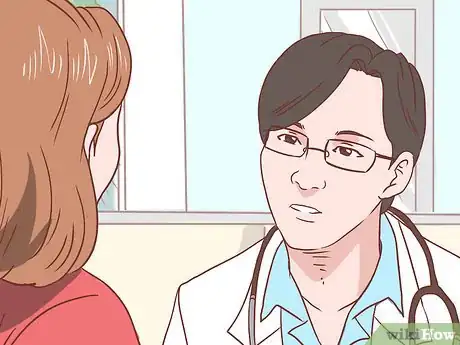
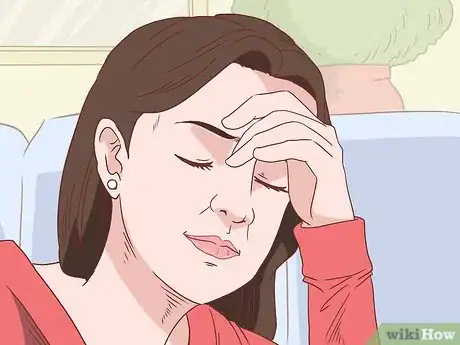

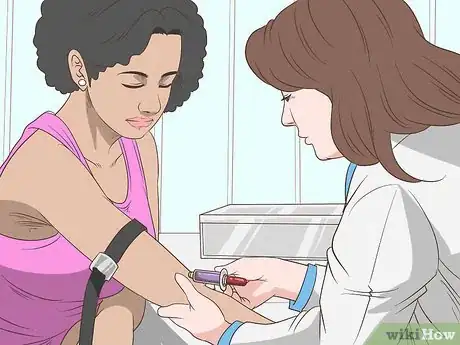

-Step-11.webp)
-Step-10-Version-2.webp)
-Step-14.webp)
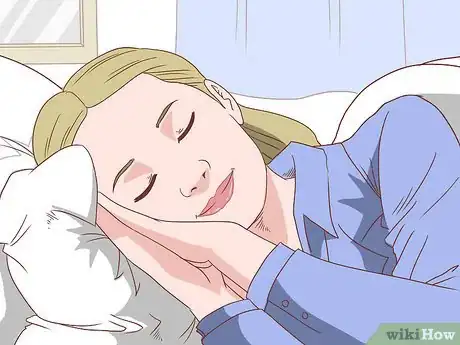
-Step-10.webp)
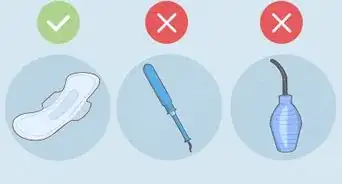

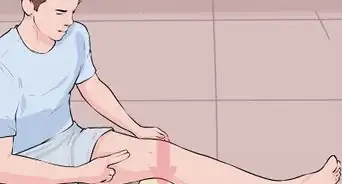
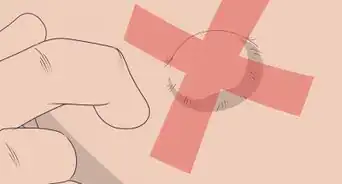
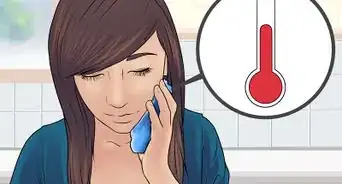
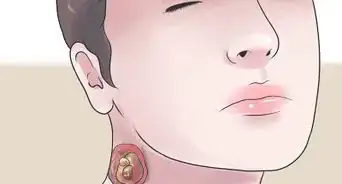
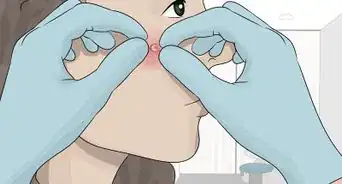
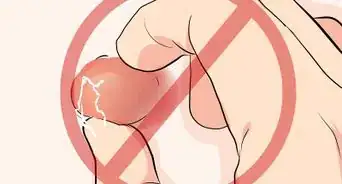
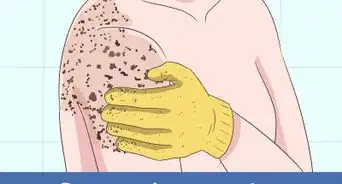
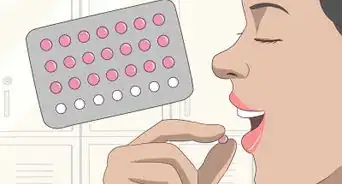
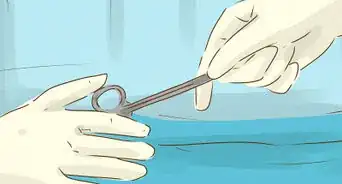
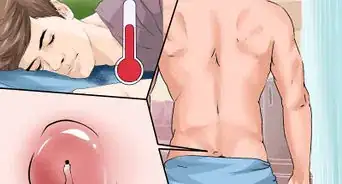
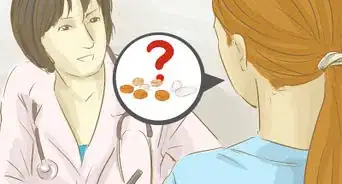
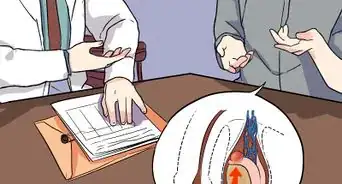







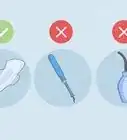

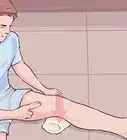




































Medical Disclaimer
The content of this article is not intended to be a substitute for professional medical advice, examination, diagnosis, or treatment. You should always contact your doctor or other qualified healthcare professional before starting, changing, or stopping any kind of health treatment.
Read More...